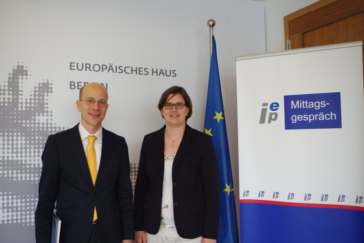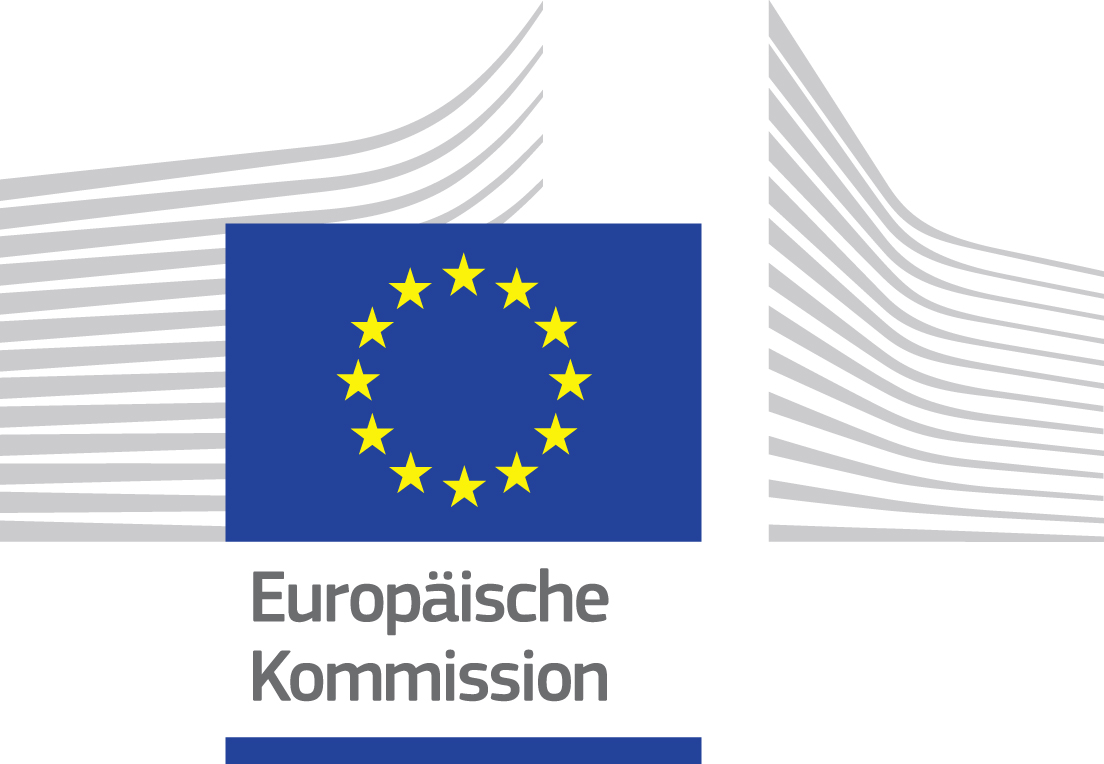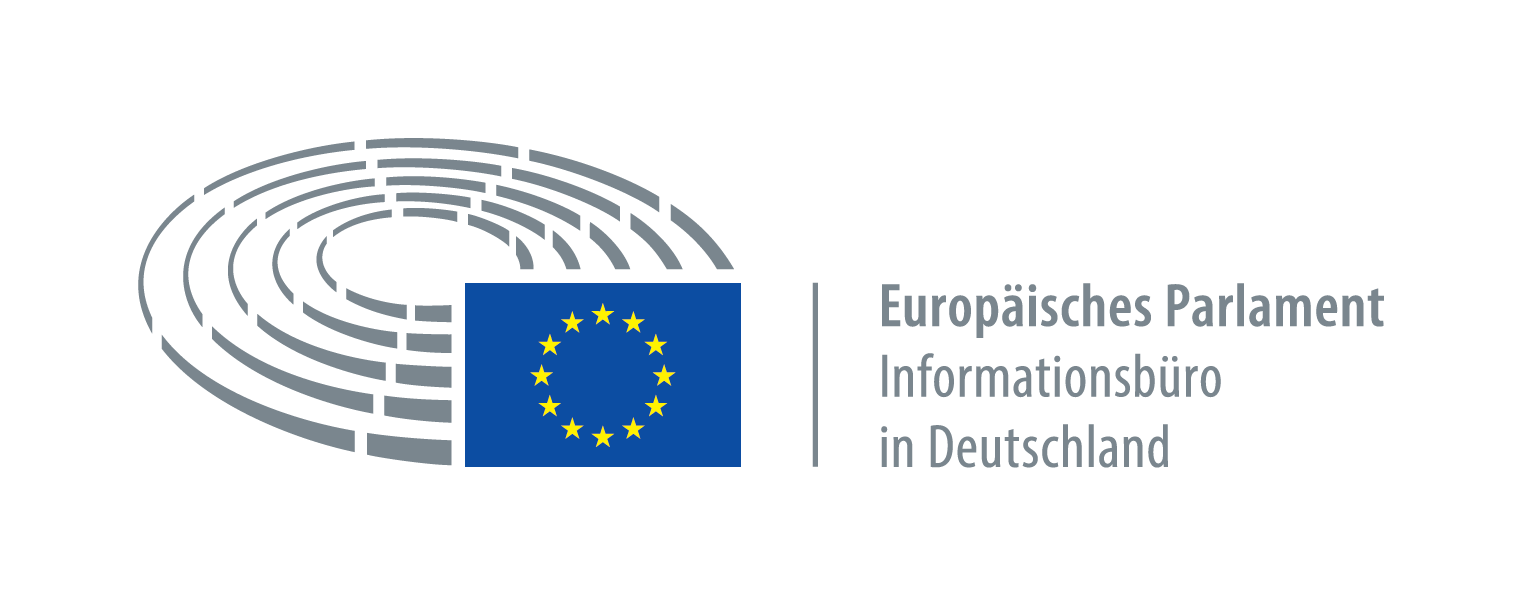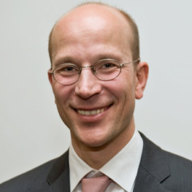IEP Lunch Debate with Ambassador Andreas Peschke, Federal Foreign Office: „The EU and the states of the Eastern Partnership“

Ambassador Andreas Peschke, Director for Eastern Europe, the Caucasus and Central Asia at the Federal Foreign Office gave a speech on “The EU and the States of the Eastern Partnership – The German Perspective” at the Representation of the European Commission in Berlin on 9 June 2016. Richard Nikolaus Kühnel, Head of the Representation of the European Commission in Germany, offered the opening remarks. Dr. Katrin Böttger, Deputy Director of the Institute for European Politics (IEP), moderated the event.
Mr. Peschke commenced his speech by briefly reviewing the history of the Eastern Partnership since its beginning in 2009. He also addressed the recent events in Ukraine, which, according to him, had tested the Eastern Partnership but ultimately strengthened it.
Mr. Peschke emphasized the common features of the Eastern Partners and the significance of a common European framework to support them. He, however, also underlined the importance of differentiation to account for the different stages of the Eastern Partners’ cooperation with the EU. On the one hand, there were tentative steps towards cooperation between the EU and Belarus in the framework of the Informal Contact Group and a desire for deeper cooperation with the EU in Armenia and Azerbaijan. The other three countries of the Eastern Partnership, Georgia, Moldavia and Ukraine had, on the other hand, already achieved considerably deeper cooperation with the EU through Association Agreements (AA) and the Deep and Comprehensive Free-Trade Area (DCFTA). The positive effects of the partnership could especially be observed in Georgia which saw its trade flows with the EU increase by 11.8% since the coming into force of the AA and DCFTA.
Carrying on, Mr. Peschke addressed the conditionality of support in the framework of the Eastern Partnership. Moldavia was mentioned as an example, which, struck by a recent banking crisis and corruption scandal, does not currently receive any budget support. Concurrently, Mr. Peschke underlined the importance of communicating the positive effects of Eastern Partnership cooperation to the public. He mentioned support for increased cooperation amongst the Eastern Partners as an additional goal.
As a closing remark, Mr. Peschke outlined three key questions for the German government regarding the future of the Eastern Partnership. With a view towards the upcoming 2017 summit, the first question was, how a differentiated approach towards the partners could be achieved within the uniform framework of the Eastern Partnership. An additional question was how the Eastern Partners could achieve good relations with the EU while also maintaining their relations to Russia and, lastly, how incentives for reform could be created, without the prospect of EU membership.
In the ensuing discussion with the audience, the country-specific situations regarding the Eastern Partnership, the missing security component in the partnership framework despite several more or less frozen conflicts, and the planned visa liberalisation for Georgia and Ukraine were discussed. Mr. Peschke indicated that when it came to security issues, the Eastern Partnership framework could play a complementary role. While other organisations, such as the OSCE, were the main actors in this field, he stated that the European Union Monitoring Mission (EUMM) in Georgia constitutes an example of EU involvement. Concerning the question on visa liberalisation, Mr. Peschke said that the EU should stand by its commitment once all remaining open questions were resolved.
By Sophia Pogrzeba




